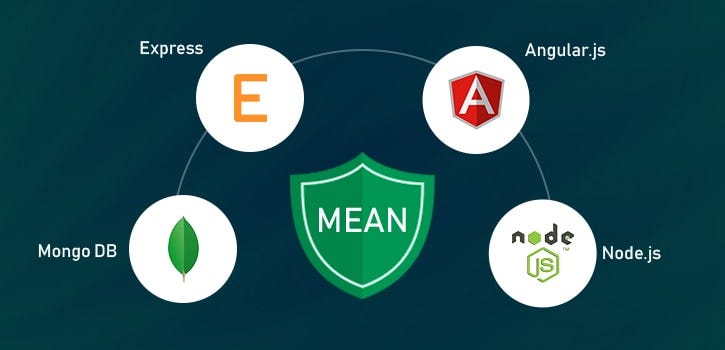MEAN Stack
The term MEAN stack refers to a collection of JavaScript based technologies used to develop web applications. MEAN is an acronym for MongoDB, ExpressJS, AngularJS and Node.js. From client to server to database, MEAN is full stack JavaScript.
What is Mean Stack Developer?
A MEAN Stack Developer is a JavaScript based application programmer who mainly works on the Mean stack. Mean stack developers work on both the backend as well as front-end of the application which are all JavaScript based and hence a Mean stack developer must have in-depth knowledge of JavaScript.

What is MongoDB?
MongoDB is an open-source, cross-platform database which is written in C++. It stores data in the key-value pair, using binary data type like JSON. It is a document-oriented NoSQL Database. A document in MongoDB resembles an Object in OOPS
Mongo DB is an ideal choice for a database system where you need to manage large sized tables with millions of data. Moreover, including a field to Mongo DB is easier as it does not require updating the entire table.
What is Express.JS?
Express is a mature, flexible, lightweight server framework. It is designed for building single, multi-page, and hybrid web applications. This lightweight framework uses the Pug engine to provide support for templates.
Express is the de-facto framework for Nodejs and is draws heavy inspiration from Sinatra, the popular Ruby framework.
What is Angular JS?
Angular JS is an open-source JavaScript framework. Angular is maintained by Google. The goal of this framework is to introduce MVC(Model View Controller) architecture in the browser-based application that makes the development and testing process easier. The framework helps you create a smarter web app that supports personalization.
AngularJS allows us to use HTML as a template language. Therefore, you can extend HTML’s syntax to express the components of your application.
What is Node JS?
Node.js allows developers to create web servers and build web applications on it. It’s a server-side Javascript execution environment.
Node.js uses a non-blocking and event-driven I/O model. This makes it lightweight and efficient, perfect for data-intensive real-time applications that run across distributed devices.
It allows developers to create data-intensive real-time apps that run across distributed devices. You can run Node.js runtime on Microsoft Windows, OS X, and Linux.
Advantages of Mean Stack
- Allows creating a simple open source solution which can be used to build robust and maintainable solutions.
- Helps in rapid development of applications
- MEAN is full stack JavaScript which is 100% free. Leverage JavaScript’s popularity
- Use a uniform language throughout your stack
- Uses very low memory footprint/overhead
- Helps you to avoid unnecessary groundwork and keeps your application organized
- MongoDB is built for the cloud
- Node.js simplifies the server layer
- MEAN makes code isomorphic
Disadvantages of Mean Stack
- MongoDB may be an ideal choice for small to the mid-sized application. However, it is not the best option for large-scale applications
- There are no specific general JS coding guidelines
- Once you have developed the first site using Mean stack technology, it’s really hard to go back to the old approach
- It offers poor isolation of server from business logic
- You could potentially lose records
0 Comments